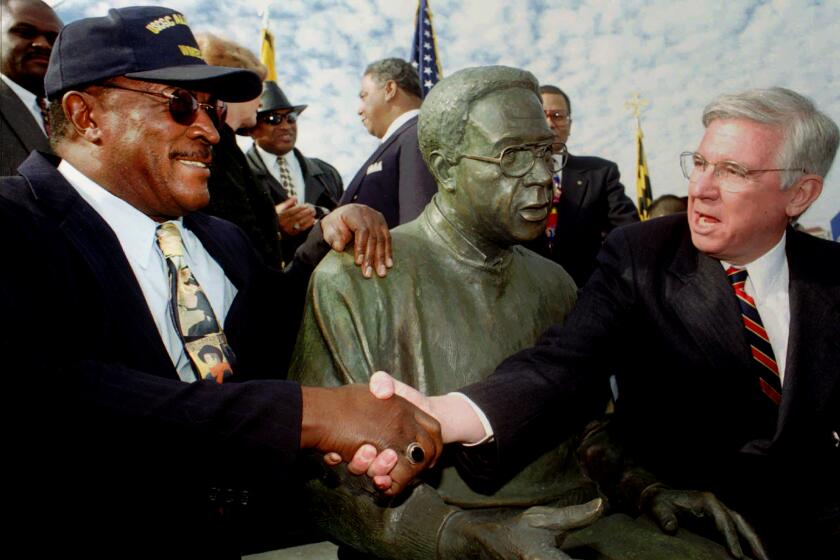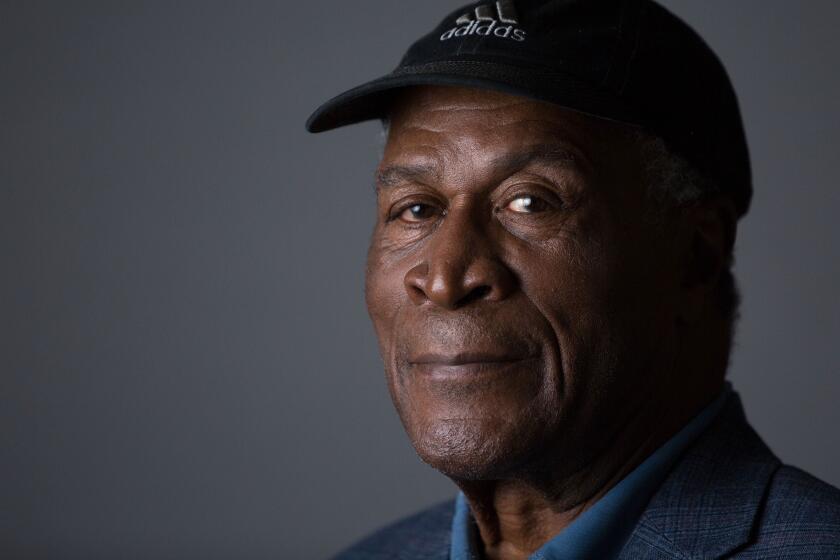Big Vivendi Stock Purchase Disclosed
French corporate raider Vincent Bollore has amassed a 5-million-share stake in Vivendi Universal, adding to the intrigue and management tumult that have rocked the media conglomerate this week.
Bollore, who has a reputation for shaking up undervalued companies, last week acquired the 0.5% stake in Vivendi, making him among the top 10 investors in the Paris-based concern.
Vivendi Chief Executive Jean-Marie Messier welcomed the investment as a sign of confidence in the company, whose stock has fallen 35% this year amid concerns about the company’s debt load and Messier’s strategy for converting a water utility into a global media and entertainment leader.
But it’s unclear whether Bollore is friend or foe to Messier and Vivendi.
Bollore reportedly has close ties to the French government, which is furious with Messier over his decision to ax the popular head of the money-losing Canal Plus pay television group.
The firing touched off a political and cultural uproar in France, where Canal Plus is the leading financier of French cinema and is a symbol of the country’s cultural independence from the United States. Vivendi owns Los Angeles-based Universal Studios.
Analysts interpret Bollore’s play as a pure investment decision rather than as the first step in a hostile takeover.
Bollore bought the shares last week when they hit a five-year low on the Paris Bourse. Vivendi’s American depositary receipts closed up 11 cents at $35.41 on Friday in trading on the New York Stock Exchange.
Bollore has been a major investor in such companies as Lazard Freres, Peugeot and Mediobanca.
“What this is, very simply, is a financial investor who saw that Vivendi’s shares were undervalued at the time he bought them,” said Mark Harrington, an analyst with J.P. Morgan. “I don’t think there’s any hidden agenda with regards to a hostile takeover bid.”
Analysts say Bollore has $1 billion more that he could invest in Vivendi, but that would give him only a 2.5% stake in the company, putting him behind the top two investors, the Bronfman family, which owns 5% of the outstanding shares, and Royal Philips Electronics, which has a 3.5% stake.
A breakup of the company by a consortium of investors is unlikely, Harrington said. “There’s just no hidden gem within Vivendi that I think would attract financial investors,” he said, citing the financial losses at Canal Plus and the slowdown in the company’s music business.
“The market capitalization is about $40 billion, so it’s still a sizable offering,” said George Nichols, an analyst with Morningstar Inc. in Chicago. “There aren’t many companies that would have the financial wherewithal to scoop down and grab it.”
In what’s referred to as the “Messier discount,” many analysts are reducing their valuations of the company by 30% to 40% to reflect their concerns about Messier’s strategy and leadership.
Vivendi’s stock has fallen about 50% since the company spent $39 billion acquiring Seagram Co.’s Universal Studios and, separately, Canal Plus 18 months ago.
To help boost investor confidence, Vivendi this week said it had reached an agreement to sell its business and health publishing unit in a deal that would reduce its debt by about $900 million.
For now, most board members are backing Messier and his decision to oust Canal Plus’ Pierre Lescure, but they disapprove of the public and embarrassing way in which the management overhaul was handled, as well as Messier’s previous statements criticizing French film subsidies, sources familiar with the board say.
More to Read
The biggest entertainment stories
Get our big stories about Hollywood, film, television, music, arts, culture and more right in your inbox as soon as they publish.
You may occasionally receive promotional content from the Los Angeles Times.











